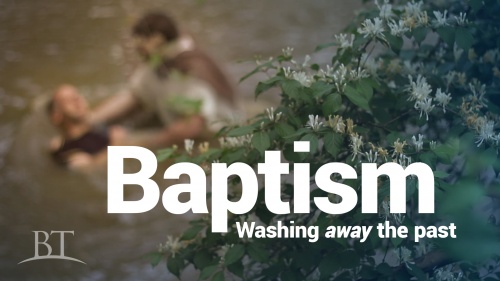Writing of her childhood in Africa, Alexandra Fuller remembered the
land reforms that took place in many African nations following
independence from European colonialism.
“This is how land redistribution goes. First, the nice farms, near the city, are given to [the president's] political allies.
“Then, the nice farms far from the city are given to those politicians whom [the president] must appease, but who are not best-beloved.
“After that, the productive, tucked-away farms are given to worthy war veterans—to the men, and a few women, who showed themselves to be brave liberation strugglers.
“Then farms like ours—dangerously close to existing minefields, … with sporadic rains, unreliable soil, a history of bad luck—are given to [the president's] enemies, whom he is pretending to appease” ( Don't Let's Go to the Dogs Tonight: An African Childhood , 2001, p. 151).
Those who needed help the most, the African peasants who daily struggle for existence, were left out.
Such corruption is all too prevalent throughout Africa, where the vast majority are penniless peasants while a ruling minority have made huge personal gains in the name of liberation. As Ghanaian writer George Ayittey put it: “In Africa there are two classes of people: the real people (the peasants) and the parasitic elites” ( Africa Betrayed , p. xvii, 1992).
After independence, many African leaders amassed vast fortunes at the expense of their own people. Subsequent poverty and economic collapse were then blamed on the former colonial power or on Western “imperialism.” Government officials and policemen asking for bribes became common—and still are. I can attest to this based on my own firsthand experience living in Africa.
For example, when I applied for a driver's license in an African nation, I learned that I had a choice. Either I could take the test, fail and then pay a bribe for a license, or I could bypass the test and simply pay the official a bribe and receive my license. Judging from the standard of driving in that particular nation, I would say that most people chose the latter course. Even hospitals operate this way. When my wife needed hospitalization for malaria, no doctor was available until a bribe was offered.
Africa isn't alone in its long history of bribery and other corruptions. The Russian author Nikolai Gogol (1809-1852) exposed corruption in czarist Russia in his two famous works, The Inspector General (1836) and Dead Souls (1842). Nothing has changed. Corruption survived the empire, persisted throughout communist rule and continues today. The Latin countries of southern Europe and South America also have long histories of corrupt government officials. Argentina is the latest nation to suffer economic upheaval as a result of this virulent plague.
Having experienced corruption in a number of countries, I find that one fact is clear: the more government, the more corruption. When the Israelites asked for a king to be like the other nations, God warned that human government inevitably expands and takes more and more away from the people. Leaders would seek material benefits for themselves until the people would “cry out” for relief (1 Samuel 8:18).
When commerce is hindered by excessive legislation, opportunities abound for corrupt government officials. Anyone wanting to operate a business in most countries has to apply for multiple permits. Every government department will expect its cut. Is it any wonder so many nations remain economically undeveloped? While the leaders may prosper in such a system, ordinary people are denied jobs and hope of economic advancement.
Aid organizations openly admit that up to 80 percent of what they routinely send into some countries disappears into the hands of government officials, who then sell the donated items—often desperately needed food—for personal gain. Attempts by Westerners to oversee distribution are contemptuously dismissed as interference or even neocolonialism.
In cultures in which corruption is a way of life, the biggest single step any government can take to reduce its effects is to ease the requirement for permits to operate a business or other organization. This boosts employment and economic growth while reducing corruption at all levels. But leaders have to set the example.
A seemingly simple step that Western democracies could take to reduce corruption in poor countries would be to prevent their leaders from stowing plundered funds in Western bank accounts. But even this small step has proved impossible—too many officials in Western countries need those secret accounts to stash away their own ill-gotten gains. It seems little will be done until a complete change in government is instituted—a change that will not take place until Jesus Christ returns to earth and establishes His Kingdom. Then “He will teach us His ways, and we shall walk in His paths” (Micah 4:2). GN
“This is how land redistribution goes. First, the nice farms, near the city, are given to [the president's] political allies.
“Then, the nice farms far from the city are given to those politicians whom [the president] must appease, but who are not best-beloved.
“After that, the productive, tucked-away farms are given to worthy war veterans—to the men, and a few women, who showed themselves to be brave liberation strugglers.
“Then farms like ours—dangerously close to existing minefields, … with sporadic rains, unreliable soil, a history of bad luck—are given to [the president's] enemies, whom he is pretending to appease” ( Don't Let's Go to the Dogs Tonight: An African Childhood , 2001, p. 151).
Those who needed help the most, the African peasants who daily struggle for existence, were left out.
Such corruption is all too prevalent throughout Africa, where the vast majority are penniless peasants while a ruling minority have made huge personal gains in the name of liberation. As Ghanaian writer George Ayittey put it: “In Africa there are two classes of people: the real people (the peasants) and the parasitic elites” ( Africa Betrayed , p. xvii, 1992).
After independence, many African leaders amassed vast fortunes at the expense of their own people. Subsequent poverty and economic collapse were then blamed on the former colonial power or on Western “imperialism.” Government officials and policemen asking for bribes became common—and still are. I can attest to this based on my own firsthand experience living in Africa.
For example, when I applied for a driver's license in an African nation, I learned that I had a choice. Either I could take the test, fail and then pay a bribe for a license, or I could bypass the test and simply pay the official a bribe and receive my license. Judging from the standard of driving in that particular nation, I would say that most people chose the latter course. Even hospitals operate this way. When my wife needed hospitalization for malaria, no doctor was available until a bribe was offered.
Africa isn't alone in its long history of bribery and other corruptions. The Russian author Nikolai Gogol (1809-1852) exposed corruption in czarist Russia in his two famous works, The Inspector General (1836) and Dead Souls (1842). Nothing has changed. Corruption survived the empire, persisted throughout communist rule and continues today. The Latin countries of southern Europe and South America also have long histories of corrupt government officials. Argentina is the latest nation to suffer economic upheaval as a result of this virulent plague.
Having experienced corruption in a number of countries, I find that one fact is clear: the more government, the more corruption. When the Israelites asked for a king to be like the other nations, God warned that human government inevitably expands and takes more and more away from the people. Leaders would seek material benefits for themselves until the people would “cry out” for relief (1 Samuel 8:18).
When commerce is hindered by excessive legislation, opportunities abound for corrupt government officials. Anyone wanting to operate a business in most countries has to apply for multiple permits. Every government department will expect its cut. Is it any wonder so many nations remain economically undeveloped? While the leaders may prosper in such a system, ordinary people are denied jobs and hope of economic advancement.
Aid organizations openly admit that up to 80 percent of what they routinely send into some countries disappears into the hands of government officials, who then sell the donated items—often desperately needed food—for personal gain. Attempts by Westerners to oversee distribution are contemptuously dismissed as interference or even neocolonialism.
In cultures in which corruption is a way of life, the biggest single step any government can take to reduce its effects is to ease the requirement for permits to operate a business or other organization. This boosts employment and economic growth while reducing corruption at all levels. But leaders have to set the example.
A seemingly simple step that Western democracies could take to reduce corruption in poor countries would be to prevent their leaders from stowing plundered funds in Western bank accounts. But even this small step has proved impossible—too many officials in Western countries need those secret accounts to stash away their own ill-gotten gains. It seems little will be done until a complete change in government is instituted—a change that will not take place until Jesus Christ returns to earth and establishes His Kingdom. Then “He will teach us His ways, and we shall walk in His paths” (Micah 4:2). GN



No comments:
Post a Comment